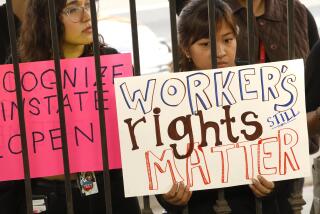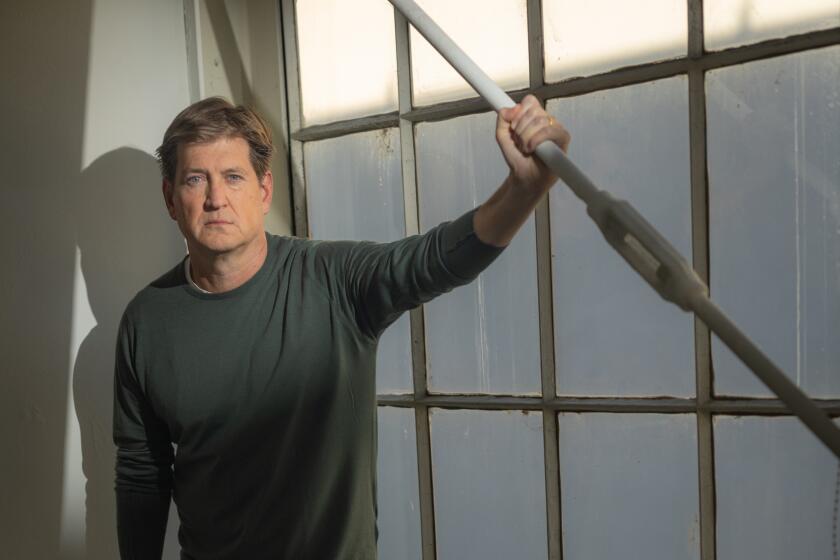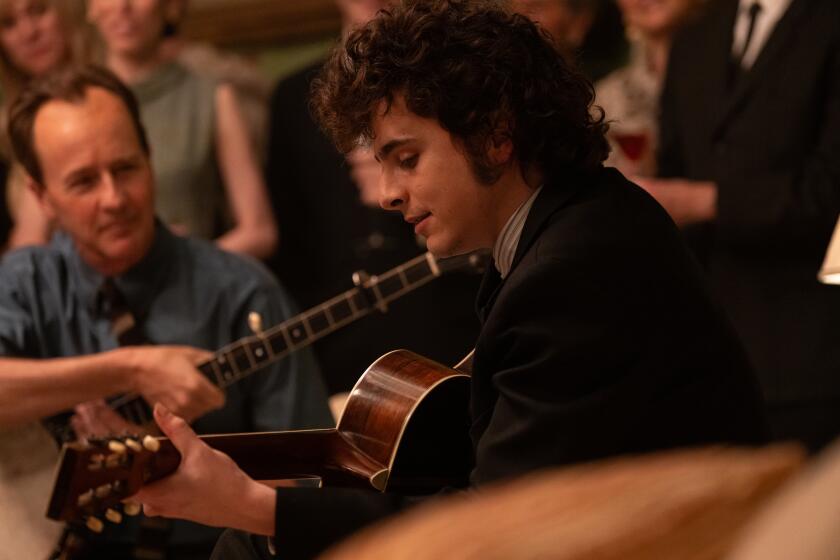ARTS WORLD WORRIED BY STOCK DROP
Some key arts community officials predicted Tuesday that this week’s massive collapse in stock prices could mean hard times ahead for the nation’s arts institutions.
An informal survey of the nonprofit arts world found that most fund-raisers, corporate giving officers, foundation executives and government officials believe it is too soon to determine what, if any, effect the plunge will have.
But some of those surveyed expressed concern that the stock market fall could force non-governmental giving, particularly by individuals, to decline.
“It’s awfully hard to analyze,” said Frank Hodsoll, chairman of the National Endowment for the Arts, as the Dow Jones average continued to roller-coaster Tuesday. “But (the drop) has to be negative for philanthropic giving. If the market is down, certainly people feel that they have less disposable income.”
Leonard L. Silverstein, a tax attorney who serves on the President’s Committee on the Arts and Humanities, said, “It’s much too early to tell anything. But just the loss of (stock market) value . . . and a feeling of less overall net worth will probably result in less exuberance in respect to cash contributions if the present chaotic condition continues.”
(Ironically, Jeanette McElwee, contributions manager for Carter Hawley Hale stores, a major local arts supporter, last month told the California Arts Council to advise their grant recipients to look to individuals, not corporations for matching funds. The council has recently begun a new effort, part of a nationwide trend, to supplement its annual budget with more private sector funds than ever.)
However, private and corporate foundations may also be negatively affected, though to a somewhat lesser degree, Hodsoll and Silverstein agreed.
Silverstein said that foundations, which are required to spend a portion of their assets annually, “will also feel, if their net worth is diminished, that they will have less pay-out requirements.”
Corporations’ philanthropic budgets are determined less by tax laws than by annual profits, he said, “so the corporations would be affected to the extent that they predict the economy might decelerate.”
A quick survey of some local corporations that support the arts revealed that the stock plunge caused little concern in relation to philanthropic giving, however.
“We receive an amount each year from Arco based on the past three years of its earnings,” said Jean Wilson, president of the Arco Foundation. “That helps to stabilize us, and I think it’s premature to speculate about the overall effect on the overall economy.”
The Persian Gulf situation could push up the price of oil, he noted.
The First Interstate Bank of California Foundation does not “anticipate any change in our plans for 1988” for donations to the arts, said spokesman John Popovich.
A spot check of private foundations also showed little thought of change in arts support strategies.
“We haven’t evaluated the impact as yet,” said Francis Dykeman, management consultant of the W. M. Keck Foundation, “but off the cuff, I don’t feel (the drop) will have a great impact.”
Many major cultural institutions nationwide have their own endowments, whose stock portfolios provide “a good amount of the working capital of those institutions,” said Anne Murphy, director of the American Arts Alliance, the nation’s arts advocacy group.
“And if you expect a 10% return on your portfolio,” Murphy said, “factored out to be $1 million to use as working capital, and you don’t get that (because of stock market declines), you’re going to have some big gaps in your budget planning.
“If the stock drop continues,” Murphy added, “you’ll see a drop-off in works not yet undertaken,” such as a ballet yet to be choreographed or a sculpture yet to be made.
Officials at a number of major local arts institutions generally felt that comment on the effect of the stock drop on their future fund-raising plans was premature.
“We are very concerned as private citizens as well as an institution,” said Joanne Kozberg, vice chairman of the Music Center board of governors and vice chairwoman of the California Arts Council. “But at this point we hope the situation will be self-correcting.”
Asked whether the Music Center plans any alterations in its fund-raising strategies, Kozberg replied: “At this point, (the drop) happened over such a short period of time and we’re very hopeful that it won’t continue.”
Added Hodsoll: “The basic economy, remains good, considering interest rates, unemployment and inflation. . . . If the overall economy is strong, giving will continue strong.”
More to Read
The biggest entertainment stories
Get our big stories about Hollywood, film, television, music, arts, culture and more right in your inbox as soon as they publish.
You may occasionally receive promotional content from the Los Angeles Times.










